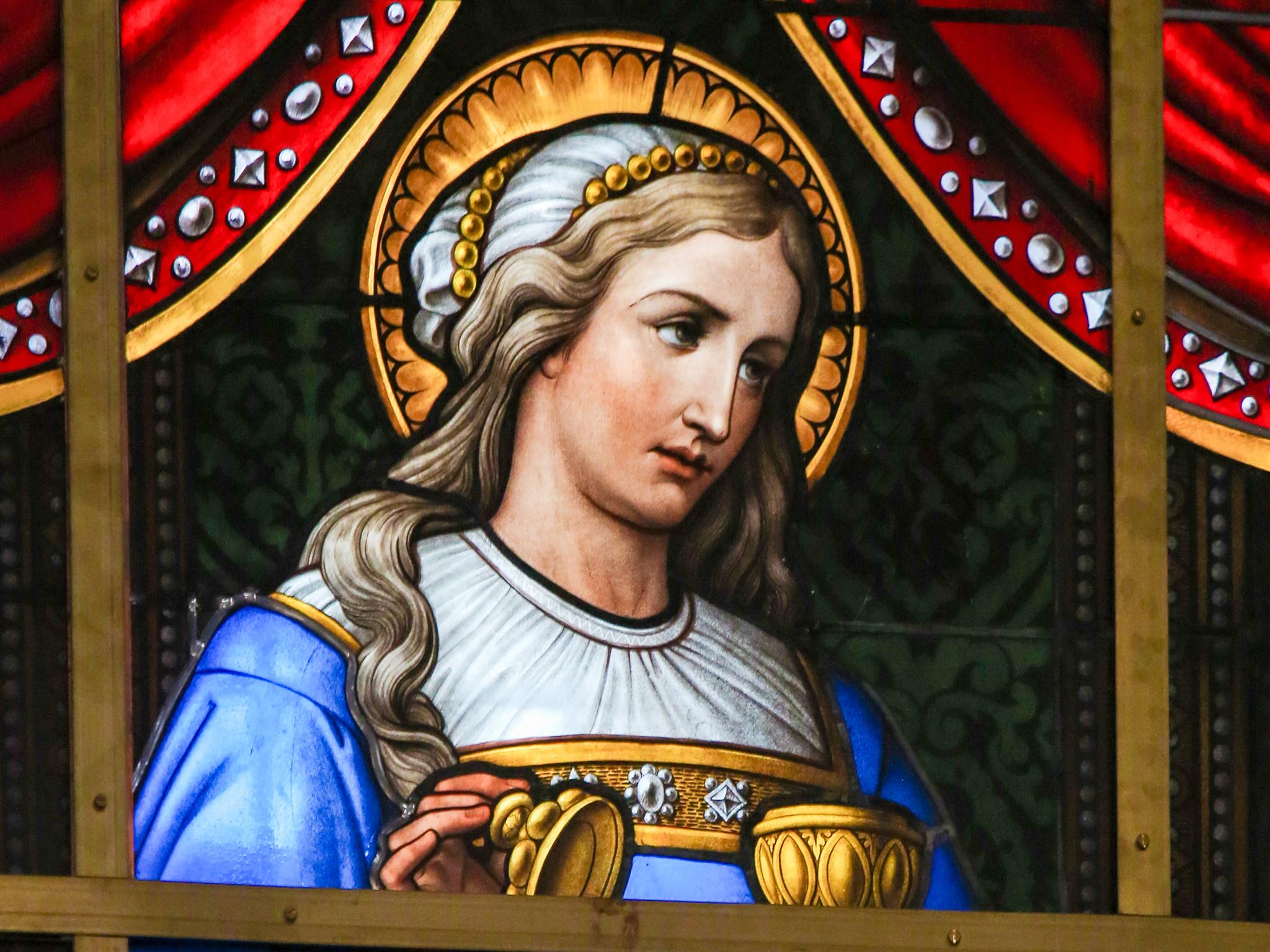‘Mary Magdalene’ Review: A Revision in Need of Revision

By Glenn Kenny
April 11, 2019
In much of popular culture, Mary Magdalene is portrayed as a temptress who found piety after Jesus delivered her from a stoning. This new movie, directed by Garth Davis from a script by Helen Edmundson and Philippa Goslett, is a revisionist depiction that lines up with recent historical scholarship about her, calling her an “apostle of the apostles.” Unfortunately, it’s a confused and frequently enervating effort.
The Mary of this picture is slight, pale, quiet and modest. Rooney Mara, the lead actress, conveys these four qualities seemingly without trying. We first see Mary working a field, then providing midwife services. She is a valued member of her Judaea community, but she has an unsatisfied spiritual yearning that others find alienating.
Then along comes Jesus, played by Joaquin Phoenix. Phoenix is a remarkable actor, especially good at containing stressed-out intensities. But some states seem beyond his grasp. Beatitude would appear to be one of them. When he goes for it, he projects a spaced-out air that’s a little cult-leaderish. Which may be his point — not that the movie actually presents a wholly consistent perspective.
The script often stresses the political struggles of Jesus’s time, and posits the apostles Peter (Chiwetel Ejiofor) and Judas (Tahar Rahim) as, besides seekers of the kingdom of heaven, determined anti-Roman activists.
In this narrative, Mary is the only follower who truly “gets” Jesus. But because the movie is so apprehensive about the subject of Christ’s supposed divinity, the ultimate gist of what she alone understands never comes across. “Mary Magdalene” dutifully telegraphs the nobility and compassion of its title character while remaining noncommittal about everything else in its path.
WritersHelen Edmundson, Philippa Goslett
StarsRooney Mara, Joaquin Phoenix, Chiwetel Ejiofor, Tahar Rahim, Ariane Labed
RatingR
Running Time2 hours
GenreDrama
Mary Magdalene was not a prostitute but a devoted disciple who supported Jesus financially and spiritually, scholars say
'Reanalysing that reputation that she had we can see she was probably a woman of greater social status, higher social status, a woman of wealth who accompanied Jesus'
Alon Bernstein,Isaac Scharf
Monday 01 April 2019 15:07Comments

Pope Francis took the biggest step yet to rehabilitate her image by declaring a major feast day in her honour
(Shutterstock)
If there’s a feminist figure from the Bible for the #MeToo era, it could very well be Mary Magdalene.
The major character in the life of Jesus was long maligned in the West and portrayed as a reformed former prostitute. But scholars have adopted a different approach more recently, viewing her as a strong, independent woman who supported Jesus financially and spiritually.
The New Testament tells how Jesus cast demons out of her. She then accompanied Jesus in his ministry around the Galilee, before witnessing his crucifixion, burial and resurrection in Jerusalem, which is being commemorated by Christians this week and next. The Roman Catholic Church and Western Christian churches observe Easter on Sunday, Eastern Orthodox Christians a week later.
Recommended
 Including Jesus in the #MeToo movement is a step too far
Including Jesus in the #MeToo movement is a step too far Muslim boys who insulted Christianity sentenced to memorise Quran
Muslim boys who insulted Christianity sentenced to memorise Quran Jesus actor confirms return for Passion of the Christ
Jesus actor confirms return for Passion of the Christ Pope Francis took the biggest step yet to rehabilitate Mary Magdalene’s image by declaring a major feast day in her honour on 22 June. His 2016 decree put the woman who first proclaimed Jesus’ resurrection on par with the liturgical celebrations of the male apostles.
“By doing this, he established the absolute equality of Mary Magdalene to the apostles, something that has never been done before and is also a point of no return” for women in the church, said Lucetta Scarrafia, editor of the Vatican-published Women Church World monthly magazine.
For centuries, Western Christianity depicted Mary Magdalene as a former prostitute, a narrative that began in the sixth century.
Historic England's best new listed buildingsShow all 34




Only in 1969 did the Catholic Church roll back centuries of labelling Mary Magdalene as such, stating she was distinct from the sinful woman mentioned in the Gospel of Luke. Eastern Orthodox Christians never depicted her as a prostitute.
Mary Magdalene was from a thriving fishing village on the Sea of Galilee named Magdala, which has been excavated extensively by archaeologists in recent decades.
The site is home to the oldest known synagogue in the Galilee, where a stone bearing the likeness of the Jewish Temple in Jerusalem was found, as well as a marketplace, ritual baths and fishing harbour. Marcela Zapata-Meza, the lead archaeologist at the site, has called it “the Israeli Pompeii”.
Modern scholars have adopted a different understanding of Mary Magdalene and regard her as one of Jesus’ most prominent disciples, who stood by him to the end while his most devoted apostles did not.
“Historical tradition says she was a prostitute from Magdala,” said Jennifer Ristine, director of the Magdalena Institute at Magdala. “Reanalysing that reputation that she had we can see she was probably a woman of greater social status, higher social status, a woman of wealth who accompanied Jesus as we see in Luke 8:2, helping Jesus and his disciples with her own resources.”
Nonetheless, the image of Mary Magdalene as a licentious, sexualised woman has persisted in Western culture, including in Jesus Christ Superstar and The Da Vinci Code.
Cardinal Gianfranco Ravasi, the Vatican’s culture minister, said Mary Magdalene’s reputation was sullied by her depiction in art over the centuries.
“Art history made her become a prostitute, which is something that is not present in the Gospels,” he said, adding that she also has been portrayed as Jesus’ wife.
“It is important to find the real face of Mary Magdalene, who is a woman who represents the importance of the female aspect on the side of Christ,” he told the Associated Press at the Vatican.
The Gospel of Mary, an early Christian text, depicted her as a visionary who received secret revelations and knowledge from Jesus.
Claire Pfann, academic dean at the University of the Holy Land in Jerusalem, said Mary Magdalene must be seen for what she was: “An independent woman who has discretionary time and wealth from the city of Magdala, not identified by a father or a husband, whose life was dramatically restored, healed, changed by her encounter with this Jewish itinerant teacher and healer, Jesus of Nazareth.”
“It takes a long time for serious scholarship to trickle down to the popular level,” she added.
A new film on the life of Mary Magdalene, starring Rooney Mara in the title role, Joaquin Phoenix as Jesus and Chiwetel Ejiofor as Peter the Apostle, recasts her in that mold.
The film has been released in Europe and Australia. A release date for the United States has not been set, following the collapse of its original distributor, the Weinstein Company, after a series of sexual harassment and assault claims against founder Harvey Weinstein. The rash of allegations made against Weinstein spawned the global #MeToo movement.
Ms Ristine said Mary Magdalene plays a critical role in the New Testament and carries an “essential pivotal message of Christianity”.
“Why is a woman there, giving testimony to that in a culture where woman are just not paid attention to, or not placed as witnesses?” Ms Ristine asked. “Well, this speaks very strongly to women today, that the power of their witness, the power of their testimony to speak up for a truth, can have effects that ripple down through the centuries.”
AP



/cdn.vox-cdn.com/uploads/chorus_image/image/63388757/marymagdalenecover.0.jpg)
:no_upscale()/cdn.vox-cdn.com/uploads/chorus_asset/file/16022697/marymagdalene1.jpg)
:no_upscale()/cdn.vox-cdn.com/uploads/chorus_asset/file/16022699/marymagdalene5.jpg)
:no_upscale()/cdn.vox-cdn.com/uploads/chorus_asset/file/16022700/marymagdalene4.jpg)
:no_upscale()/cdn.vox-cdn.com/uploads/chorus_asset/file/16022702/marymagdalene6.jpg)